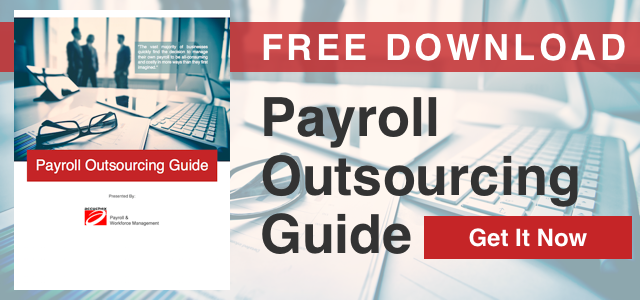 Small Businesses and CA Labor Laws Compliance Issues
Small Businesses and CA Labor Laws Compliance Issues
There are numerous CA labor laws and regulations governing the employment relationship. A company’s HR professionals are tasked with understanding and navigating these so they can help ensure their organizations avoid costly fines and other penalties. In addition, they are often the buffer between the company and potential harm to the organization’s reputation.
CA Labor Laws Demand Strict Compliance
A few examples of the laws regulating the labor relationship include:
- The Fair Labor Standards Act, which establishes the minimum wage and rights to overtime pay for certain workers
- Federal civil rights laws, which prohibit employers from considering race, gender, age, or other “protected” status when making hiring and firing decisions or otherwise setting the terms and conditions of employment
- The Family and Medical Leave Act (FMLA), which grants certain employees the right to take up to twelve weeks of unpaid leave each year in specific circumstances, as well as the right to be restored to the same or equivalent position upon returning from such leave
- The Uniform Services Employment and Reemployment Rights Act (USERRA), which establishes certain rights and protections for employees who are called to active military duty.
HR Compliance is Everyone’s Responsibility
While CEOs and smaller business owners need to be focused on growth and profitability, they also need to know what issues to be aware of in order to protect the company. Here are five of the most common HR compliance issues small businesses face:
-
Not Following Benefit Regulations and Laws
Compliance with benefits regulations is often a bigger burden for small companies. According to a survey by the U.S. Small Business Administration, smaller companies spend up to 80 percent more per employee on federal regulatory compliance than large companies. Consequently, poor management of personnel-related tasks can make compliance even more costly.
Keeping informed of all the new regulations and changing laws can be challenging for small businesses that offer retirement and health and welfare benefits. The required tests must be conducted, plan provisions must be properly applied, required notices and documents must be provided to employees, and all required government filings must be completed.
-
Failing to Safeguard Against Employee Litigation
Race and sexual discrimination are the two most prevalent forms of workplace discrimination, according to the Equal Employment Opportunity Commission (EEOC). But far too few businesses provide training regarding racial and sexual harassment policies, and this can leave companies subject to complaints, or wrongful termination when employees leave their jobs. For example, only 23 percent of small businesses provide employment discrimination and sexual harassment training according to a random survey conducted by Chubb Group of Insurance Companies.
Employee turnover contributes to employer liability by creating potential wrongful-termination cases. Studies show that a company's legal costs in a wrongful termination lawsuit can run up to $85,000, and that winning plaintiffs receive judgments averaging $500,000.
-
Lack of Coordination in HR Functions
In order for the correct amount of deductions for benefits to be taken out of an employee's paycheck, accurate information must flow to and from payroll. Payroll data and benefits record keeping need to work together seamlessly and accurately, or else payroll deductions can be wrong.
If your company is making use of different vendors for the payroll and benefits record keeping function, then you are the one who must ensure that everything is coordinated and running smoothly. This can involve numerous calls back and forth from the vendors, while also trying to understand the technicalities of the different systems.
-
No Qualified Guidance for HR Policies and Procedures
For many small to medium-sized business, the “HR department” is often just one person who has many roles. This individual may be responsible for compensation and benefits, HR management, labor relations, legal issues, staffing, HRIS, training and much more. In addition to keeping up with all of these tasks, researching new and changing rules, regulations, and legislation often involves overtime, which is both costly and inefficient.
While a typical HR generalist may know a bit about everything, rock solid HR guidance is essential because of the demands of agencies such as the Internal Revenue Service (IRS), the Department of Labor (DOL), or the EEOC. This is particularly true for issues of compensation and benefits, staffing and workers compensation. An HR generalist who makes the wrong decision about a crucial employee issue such as asking the wrong question in an interview can result in costly or litigious consequences.
-
Lack of HR Automation Resulting in Errors
When a company takes on a new hire this generates a large volume of paperwork. If a company isn’t using an online service and must deal with hard copies, errors can multiply. This continues to happen when an employee enrolls in benefits and payroll must ensure that the adequate deductions are made. If an employee has a life status change and alters his or her benefits selections, benefits and payroll must be adjusted accordingly and within the legally required time frame.
These administrative processes tend to occur in different parts of the organization, but they're dependent upon each one being carried out accurately and promptly. And at each step, when information is transferred from one HR process to another, there is a possibility for errors. Multiply this possibility by the number of employees and the reams of paperwork, and that possibility becomes a real probability. And if one area fails, the whole process comes to a halt.
Because employees to focus on the errors rather than appreciating the benefits, many employees don't realize how much money a company spends on their benefits. So instead of thinking of the top-quality benefits and flexible spending accounts, employees tend to complain that the wrong deductions were taken out of their paychecks. And this can lead to more serious claims.
Improve Your Own HR Management Practices
One of the new roles of the HR manager is that of being a bellwether of change. Staying informed and up-to-date not only of regulatory and legislative changes, but of the social and technological shifts that spell opportunity for a business.
In addition to a growing and demanding role in recruiting, hiring, and continually training employees, the HR staff will still be responsible for every other function they are typically tasked with such as payroll management, tax filings, employee records compliance, and so forth.
Considering alternatives such as outsourcing is increasingly becoming a cost-effective and strategic option. Accuchex can help you in managing your HR needs, payroll processes, and staying on top of compliance demands. Get your Free Download: Payroll Outsourcing Guide to help you make an informed decision or call Accuchex Payroll Management Services at 877-422-2824.


 Small Businesses and CA Labor Laws Compliance Issues
Small Businesses and CA Labor Laws Compliance Issues